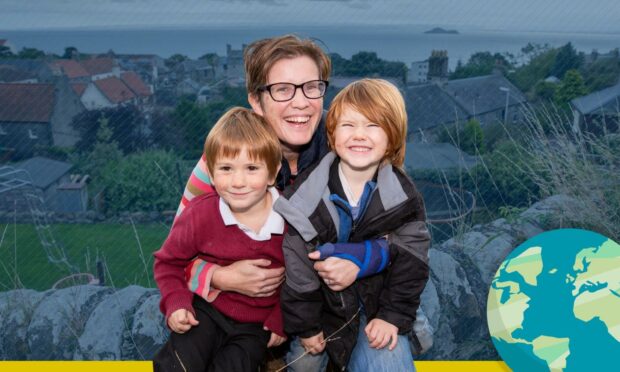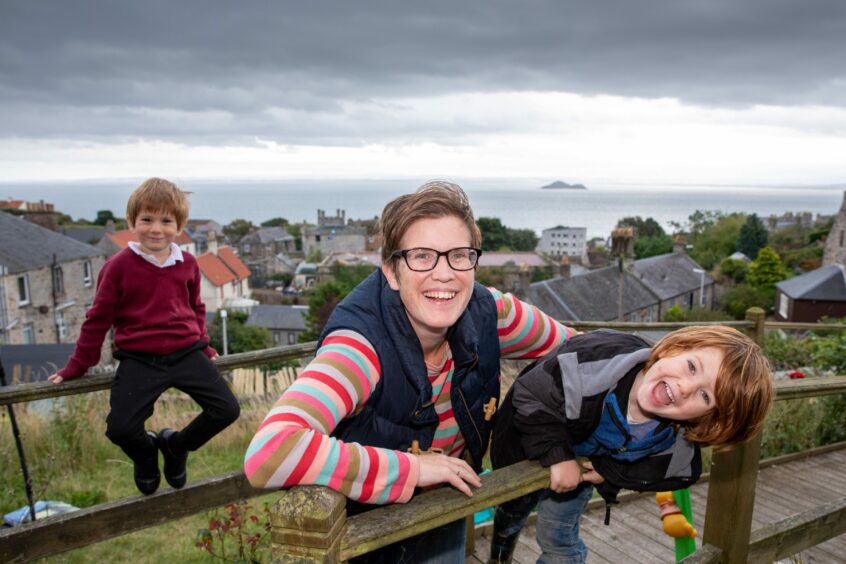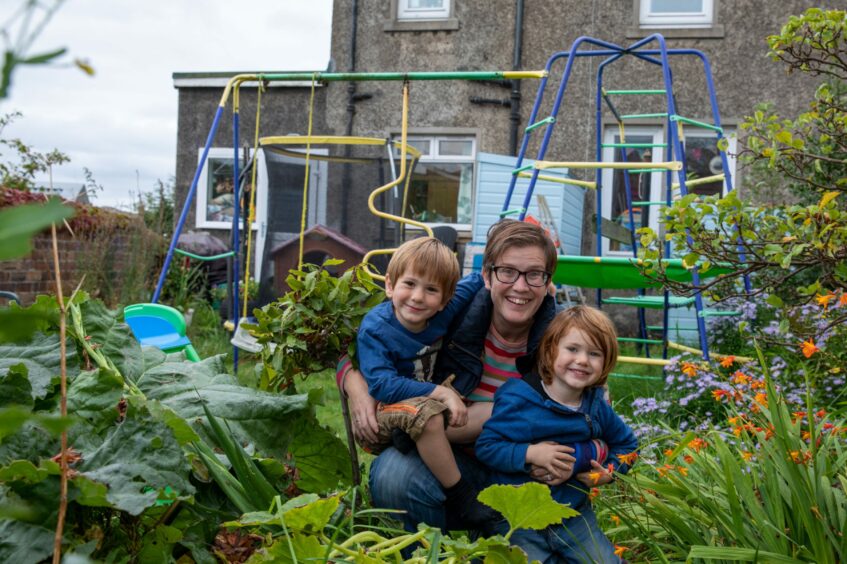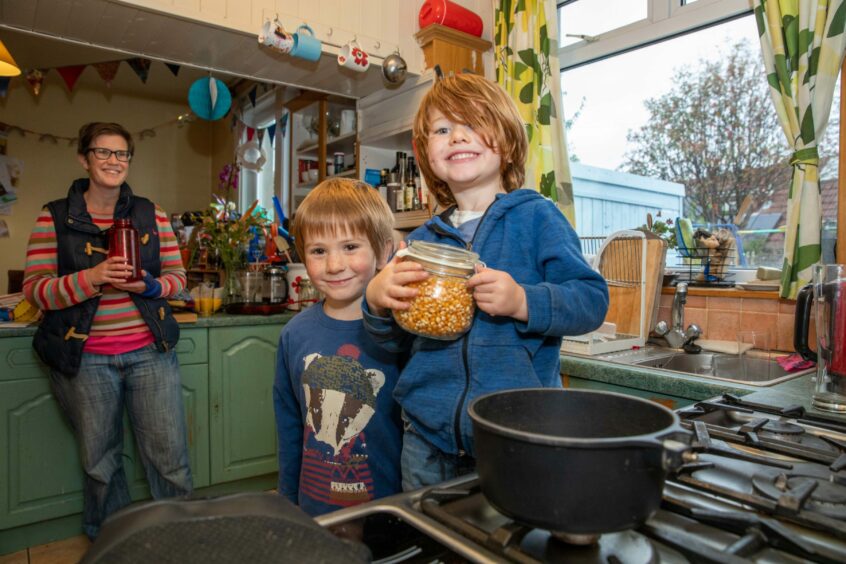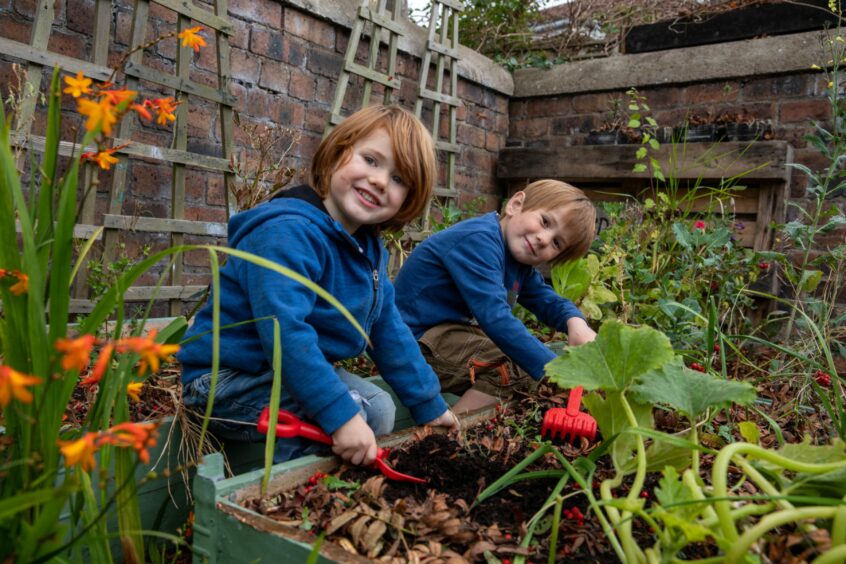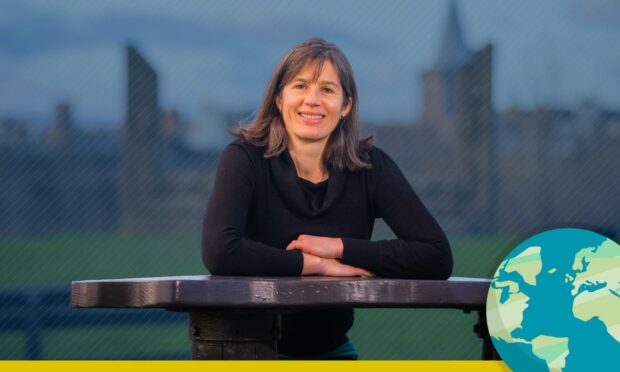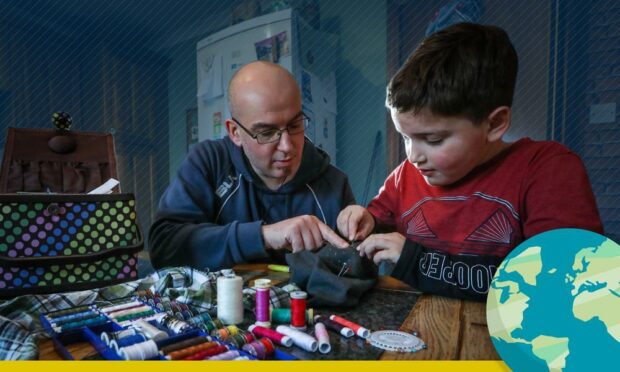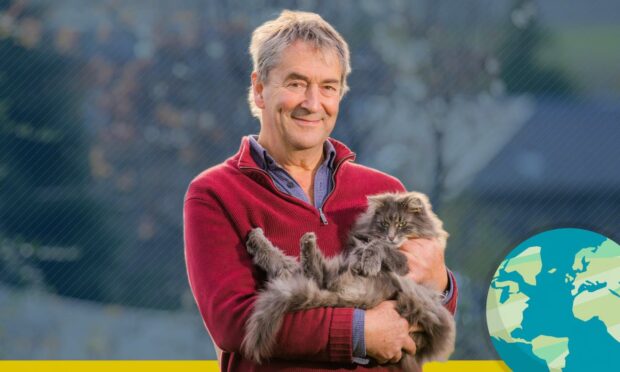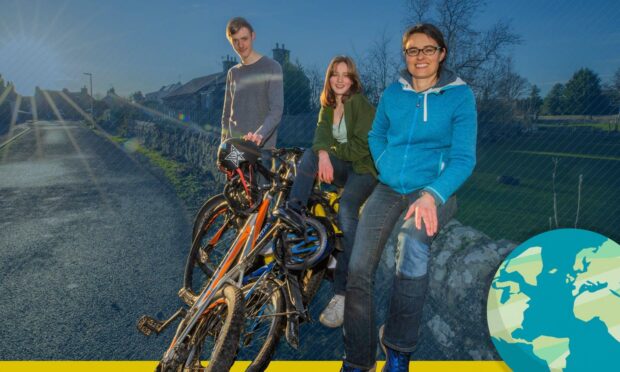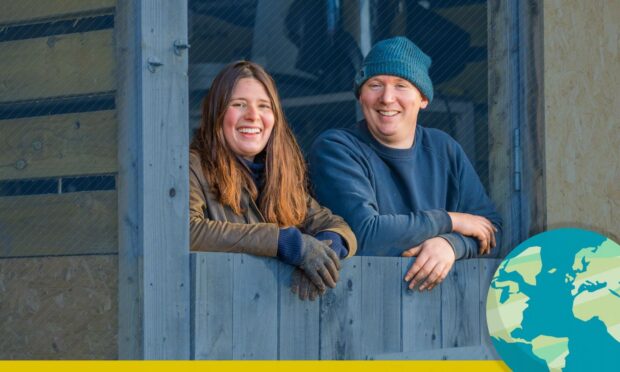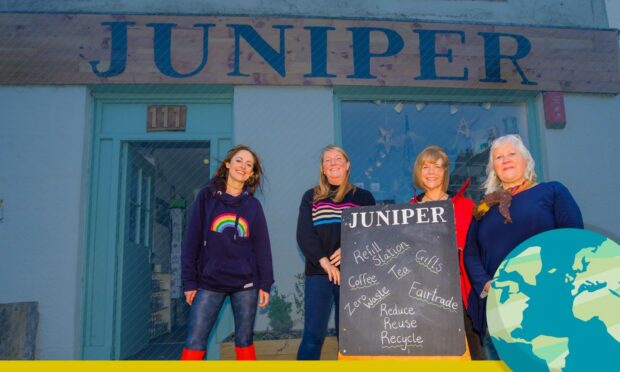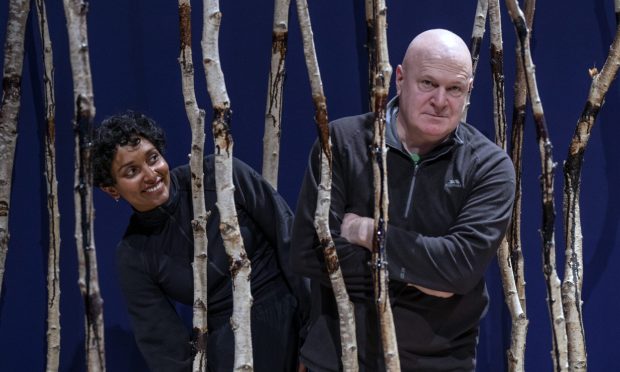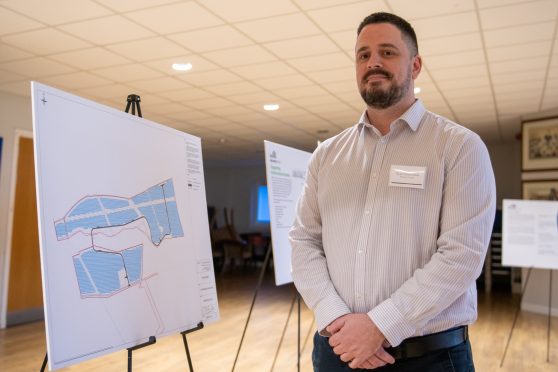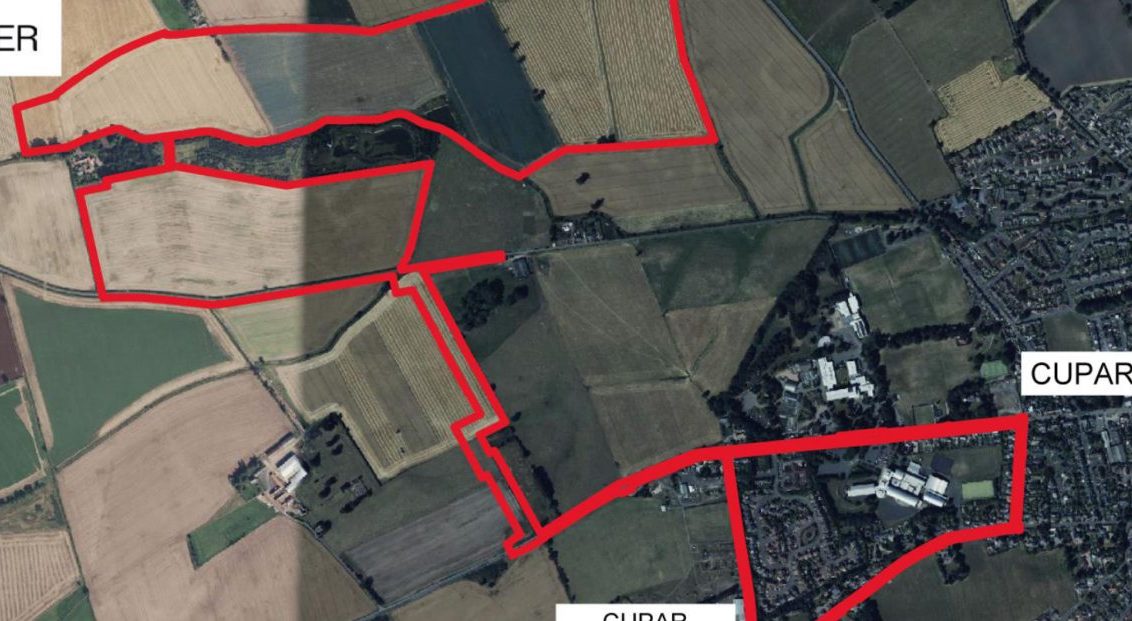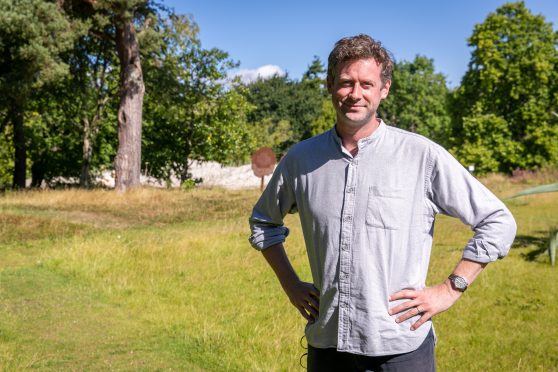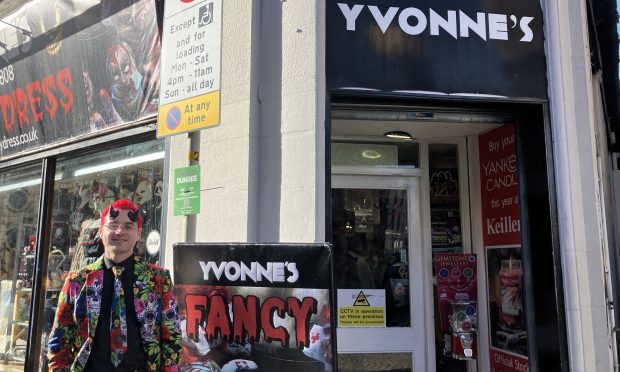A Fife family has scrapped new toys and bags of crisps as part of their journey to a sustainable and plastic free life.
Former Oxfam worker Louise Humptington runs a chain of plastic free shops.
And she tries to live as plastic free a life as possible at home with her husband Will, 37, and young sons Isaac, 5, Quinn, 4, and Cillian, 2, in Burntisland, Fife.
She admits her work makes it easier for her to make changes that others might find difficult.
But even Louise, 41, says change didn’t happen overnight.
And she has some advice for those looking to live a more sustainable life – do one thing at a time.
“We didn’t do everything all at once.
“And even though we’ve been on this journey for a number of years, we’re still not anywhere near perfect.”

In our series Saving the planet one step at a time we will be speaking to families who have made changes to their daily lives to help the environment.
And we will be looking at the barriers to living a more sustainable life.
Supermarket trip was turning point
Louise previously worked for Oxfam in Papua New Guinea.
When she got back to Scotland she was “horrified” at the amount of plastic packaging in supermarkets.
It made her think about the products she was consuming.
“All I saw was plastic everywhere.
“We were horrified by the amount of plastic in the supermarkets having become used to buying directly from local farmers.
“We began by cutting back our plastic consumption and trying not to buy products containing palm oil.”
When Louise and Will started a family, they made a decision to opt for second hand clothes and toys.
The family garden has plenty of outdoor play equipment – it is just all preloved.
“Everything we bought for the house and everything we bought for the babies was second hand. That was a start.”
What about the all important snacks?
Anyone with young children will know how little hands reach for colourfully packaged snacks during shopping trips.
But crisp packets contain harmful plastic and are not widely recycled.
Louise has therefore had to use a bit of imagination to make sure her boys do not feel they are missing out.
To make homemade crisps, she sticks vegetable peelings in the oven.
They also make their own popcorn.
“Our kids have never had stuff out of bags and they don’t really know any different.”
She says her children have supported the family decision to reduce their plastic use.
“Every so often they might see some Dairylea Dunkers at the Co-op and go ‘mummy can we have these’.
“I’ll just say ‘no, we’re not getting those’. And one of the other two will turn around and say ‘we don’t buy those because they’re in plastic’.”
She adds: “What we do provide is tasty. We’ll make up trail mix and things like that – dried fruits and maybe some mini marshmallows and some mini chocolate chips so they feel like they’re having a treat.”
Families can make a difference to plastic pollution and climate change
While tackling climate change, biodiversity loss and plastic pollution needs action from governments, Louise says individuals can make a difference.
“Those individual changes do make a difference, absolutely they do,” says Louise.
“But more importantly, they send a message to the people who can make the biggest changes, that we as consumers are not going to accept the status quo.
“When the likes of L’Oreal Paris turn around and say they’re going to bring out a shampoo bar, you know that’s a very firm indicator that they have seen the green market.”
Everyone is in the same storm, but we’re not all in the same boat.”
Louise Humpington
However, she says everyone has to make their own decision about what they can do to reduce their impact on the environment.
“Everyone is in the same storm, but we’re not all in the same boat.
“What is right for one may not be right for another.”
